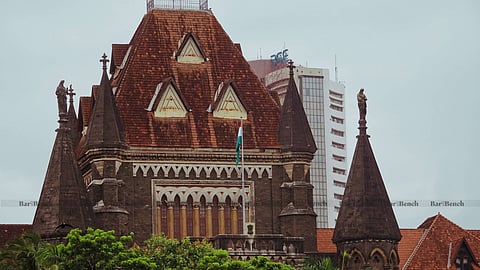
- Latest Legal News
- News
- Dealstreet
- Viewpoint
- Columns
- Interviews
- Law School
- Legal Jobs
- हिंदी
- ಕನ್ನಡ

The Bombay High Court today ruled that Maratha candidates who originally applied for various State government jobs advertised in 2019 from the Socially and Economic Backward Class can be considered for the Economically Weaker Sections (EWS) category. [Akshay Chaudhari v. State of Maharashtra & Ors. and connected matters]
A division bench of Justices Nitin Jamdar and Manjusha Deshpande struck down an order of the Maharashtra Administrative Tribunal (MAT) of February 2023 which had negated the State government’s stand to allow SEBC candidates to apply under the EWS category.
“The order deviated from the established legal principles, leading to cascading effects and negatively impacting a substantial number of candidates,” the High Court observed while setting aside the MAT order.
The judgment was passed in a batch of petitions filed by over a hundred Maratha candidates along with the State government challenging the 2023 MAT order concerning posts in Tax, Forest and Engineering services Departments of the State.
The Supreme Court had in May 2021 struck down provisions of Maharashtra State Reservation for Socially and Educationally Backward Classes (SEBC) Act, 2018 (SEBC Act) which had provided reservation to the Maratha community and which took the total quota in the State above the 50 percent ceiling set by the Court in its 1992 Indra Sawhney (Mandal) judgment.
After the Supreme Court struck down the Maratha quota, the State government extended the EWS quota facility to candidates under the SEBC category.
The Maharashtra government passed resolutions allowing candidates under the SEBC category to apply for public posts under the EWS category in the ongoing recruitment process.
These government resolutions were challenged before the MAT by candidates who had already applied under the EWS category.
The MAT upheld the challenge and disqualified the candidates who had applied under the SEBC (Maratha) category. Aggrieved by this, the disqualified candidates approached the High Court.
The petitioners claimed that the MAT order had wrongly held that the government resolutions could not be retrospectively applied.
The High Court accepted the appeals and said that the MAT wrongly extended its scope of enquiry beyond the parameters of a service dispute.
“The impugned order to bifurcate the list ignored the multi-cadre selection adversely affecting the entire process. The generalised observations in the impugned order that SEBC candidates from the Maratha community scored higher marks imply that they were never entitled to SEBC reservation exceeded the scope of the service dispute and were unnecessary," the High Court said in its judgment.
The Court also noted that after the SEBC Act was declared unconstitutional, seats reserved for SEBC candidates were integrated into the general category.
Further, the candidates who originally applied to SEBC were allowed to apply under EWS with a 'merit-based approach.'
However, the MAT order disqualified the Maratha candidates who belonged to EWS despite securing higher marks and thus, created an inequitable situation.
Hence, the same was struck down by the High Court.
Advocate General Birendra Saraf, Senior Advocates VA Thorat and Mihir Desai and government pleaders PP Kakade and MM Pabale appeared for the State of Maharashtra.
Senior Advocate Narendra Bandiwadekar with advocates Sayyed Yassen, Sahiba Ansari, Aisha Shaikh and others appeared for the candidates.
[Read Judgment]